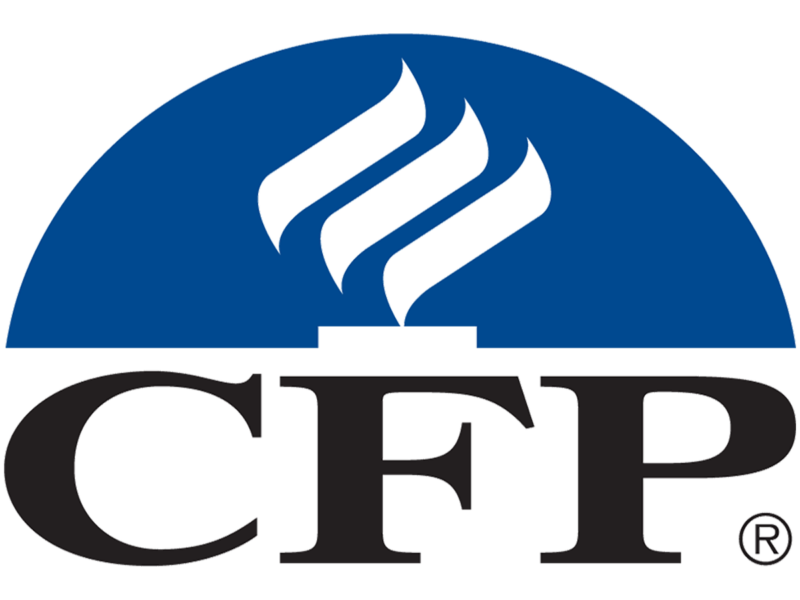After a long period of study and successful completion of six different examinations, I am proud to say that I am now a CERTIFIED FINANCIAL PLANNER™ professional.
So as you, your family or friends begin to wonder about the transition to retirement and you’re looking for advice, here are three good suggestions about what to look for:
- A CERTIFIED FINANCIAL PLANNER™ professional is trained and experienced in all aspects of the financial planning process.
- A fiduciary advisor is always an advocate for the client’s best interest.
- A fee-only financial planner gets paid only by clients and so has no financial incentive to promote one financial strategy over another.
How to choose a financial advisor
I am proud to say that I offer my clients all three of these important attributes. The 16 years of my financial services career have lead me to this point. Working with hundreds of families over the years, here are the three most important things I’ve learned about this industry—and about myself:
- It’s important to be current on the best practices in all areas of financial planning. It’s not enough to be jazzed up on the latest marketing focus from the home office, as are financial planners who are paid on commission from the products they sell. I want to understand what the industry experts have found to be the very best practices to deliver consistent results to my clients.
- For me to feel good about the services I offer, I must be allowed to act as my client’s fiduciary at all times. I have always desired to help people as much as I can and I am glad I’m not handcuffed to a large brokerage firm and the products they want me to sell.
- It’s better for my clients and for me to have my compensation separated from the financial advice I provide. By working only for a fee, I can do whatever I believe will help my client best and not have any financial conflict of interest.
Another great thing about earning the CFP® designation is that I get to benefit from the promotional efforts of the Certified Financial Planner Board of Standards, Inc. The CFP board has produced TV commercials to raise awareness of the CFP® certification and they also provide tons of financial planning resources to help the public understand the value of a financial planner. My parents where both teachers and I believe strongly in the importance of education. So I’m glad to be part of these larger educational efforts.
What is a CFP®?
The CFP® certification is a voluntary certification; no federal or state law or regulation requires financial planners to hold CFP® certification. It is recognized in the United States and a number of other countries for its:
- High standard of professional education
- Stringent code of conduct and standards of practice
- Ethical requirements that govern professional engagements with clients
Currently, more than 71,000 individuals have obtained CFP® certification in the United States.
To attain the right to use the CFP® marks, an individual must satisfactorily fulfill the following requirements:
- Education. A CFP® professional must complete an advanced college-level course of study addressing the financial planning subject areas that CFP Board’s studies have determined necessary for the competent and professional delivery of financial planning services. He or she must also attain a bachelor’s degree from a regionally accredited United States college or university (or its equivalent from a foreign university). The CFP Board’s financial planning subject areas include:
- Insurance planning and risk management
- Employee benefits planning
- Investment planning
- Income tax planning
- Retirement planning
- Estate planning
- Examination. A CFP® professional must pass the comprehensive CFP® certification examination. The examination includes case studies and client scenarios designed to test one’s ability to correctly diagnose financial planning issues and apply one’s knowledge of financial planning to real world circumstances.
- Experience. A CFP® professional must complete at least three years of full-time financial planning-related experience (or the equivalent, measured as 2,000 hours per year).
- Ethics. A CFP® professional must agree to be bound by the CFP Board’s Standards of Professional Conduct, a set of documents outlining the ethical and practice standards for CFP® professionals.
Individuals who become certified must complete the following ongoing education and ethics requirements in order to maintain the right to continue to use the CFP® marks:
- Continuing education. A CFP® professional must complete 30 hours of continuing education hours every two years, including two hours on the Code of Ethics and other parts of the Standards of Professional Conduct, to maintain competence and keep up with developments in the financial planning field.
- Ethics. A CFP® professional must renew an agreement to be bound by the Standards of Professional Conduct. The Standards prominently require that CFP® professionals provide financial planning services at a fiduciary standard of care. This means CFP® professionals must provide financial planning services in the best interests of their clients.
CFP® professionals who fail to comply with the above standards and requirements may be subject to CFP Board’s enforcement process, which could result in suspension or permanent revocation of their CFP® certification.
If you are looking for more reasons to work with a CERTIFIED FINANCIAL PLANNER™ professional check this out.
If this article has eager to make your own comprehensive financial plan with the help of a CERTIFIED FINANCIAL PLANNER™ professional, contact my office at rdunn@dunncreekadvisors.com. I am always happy to meet with people who are working on their financial goals. Dunncreek Advisors does not provide legal or tax advice, nor is this article intended to do so.


 Aren’t I Too Old for Life Insurance?
Aren’t I Too Old for Life Insurance?